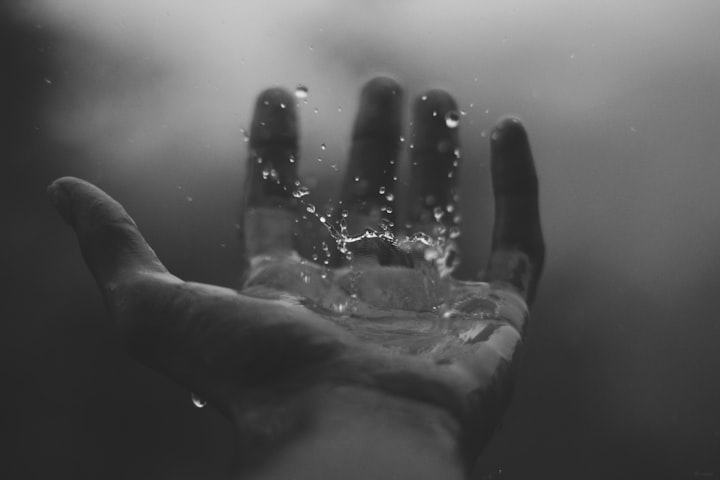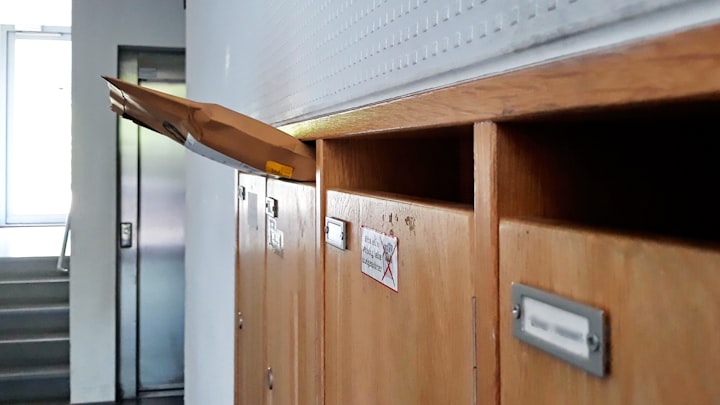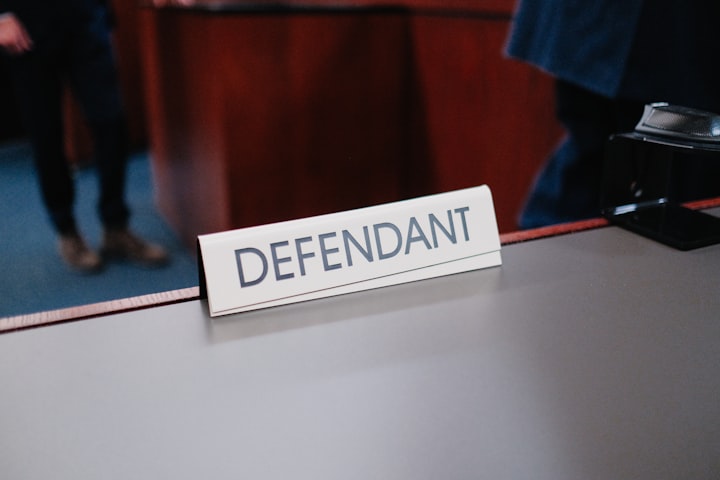
Walking back, I noticed there was a delivery sitting at the wrong door for our building, one which faces the street and leads into some offices that haven't been used in years. The tenants enter through the door around the corner. I looked at the cardboard box and bottle of soda, wondering if the hungry neighbor who ordered it would be able to figure out where their lunch was. They were probably calling the establishment now, arguing that it was not in fact delivered, and was nowhere to be found. I picked it up, carried it around the corner and inside, and left it sitting on a bannister in the stairwell.
My dog and I were both breathing heavily by the time we got to the top of the stairs, but that climb alone isn't enough to be tiresome. We'd both been sitting outside in the hot summer sun for over an hour as I read and he stared at me wondering when we could go back in and sit surrounded by pleasant, conditioned air. Once inside, we were both able to relax. After drinking some water, my companion promptly collapsed into a nap on the hardwood floor.
Lately I've been giving some thought to that philosophical puzzle regarding one's responsibility in the case that they see someone drowning. The actual parameters spelled out by Peter Singer suggest a child drowning in a pond, but often I've liked to switch it up to see if different details would change my view on the matter. What if it were a frozen pond? What if the child were instead a dog, perhaps my own dog? What if it were a mermaid I'd mistaken for a suffering human, who didn't need help at all? Or better yet, a siren maliciously calling me to my own death?
These musings, of course, don't serve to engage with the original problem, the real one. They don't change my mind either, and most that I come up with only support my view that indifference and inaction are in a moral sense perfectly fine, if not superior to alternatives.
Then there is the religious element. If someone believed in God, their action would be part of his plan, whether or not they did anything. So it seems futile to do anything, or nothing. Of course, the drowning child would not consider their assistance futile or without consequence, as even an attempt at help would be appreciated. The failure to help, or try, would likewise be regarded with scorn. You can imagine one last bitter thought as the child sinks under. Welcome to the world, and now you depart all knowing.
It's easy to be callous when there is no actual drowning child. No Amy screaming for Jo. No judgy philosopher watching from the sky, with eyebrows lifted in wait. You are your own judge, and until in the actual moment, it's not possible to say with certainty what one would do. None of us truly know ourselves completely.
My elderly dog is fast asleep and I wonder what he has learned in all his years. I wonder what thoughts trouble his head on a day to day basis. Does he consider the weight of his actions, even in hypothetical situations? How can I know? That just one barrier, communication, could so close off understanding between two who have spent more than a decade together seems a cruel fact. Another puzzle to waste mental energy on, or to spend it on, at least.
"And would I let you drown?" I ask aloud. He doesn't open his eyes. "Perhaps I would if the conditions were right. The water a nice temperature, maybe you saw a fish and chased it, only to get tangled beneath the surface. You've had a long life. You could die doing what you love, being a devil." At this, he opens his eyes and lifts his head a little to glare at me, and I smile back. I think he understands me better than I understand him, and it's alright. I can say with some certainty he wouldn't try to save me, but perhaps would bark at me as I flailed and the water filled my lungs. I might die laughing.
He wouldn't be able to rescue me anyway. Little thirty pound thing. I couldn't begrudge him a lack of effort. He doesn't really owe me anything. Really, I owe him. It would be much easier for me to assist him out of the water, because he is small and more importantly, because there is trust between us. Even if the child were small, say the same weight as my dog, who's to say their flailing wouldn't harm me, or pull me under? And what harm would the child do over the course of their life, against the harm of my naughty dog? Even the worst thing a dog could do pales against the smallest crime of a person.






Comments
There are no comments for this story
Be the first to respond and start the conversation.